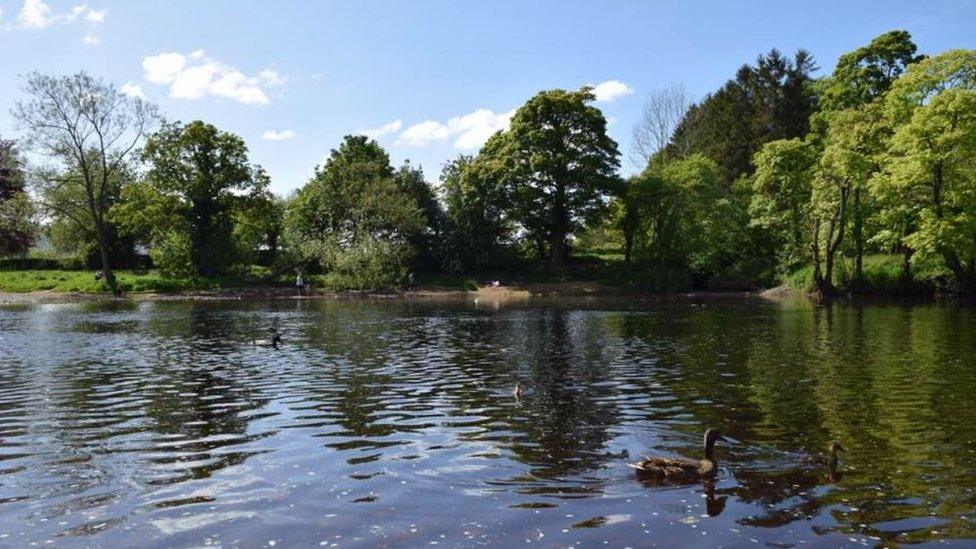Manningtree wild swimmers bid for bathing water status
- Published

Wild swimmers in Manningtree have organised several protests about the water quality of the River Stour
Wild swimmers said they were applying for bathing water status for a river to stop it being used as a dumping ground for sewage.
The group swims in the River Stour in Manningtree, Essex.
Some members have fallen sick after swimming in the river, where sewage was recorded as having been released for more than 1,200 hours last year.
Campaigner Anna Helm Baxter said: "We've had enough of polluters not being held to account."
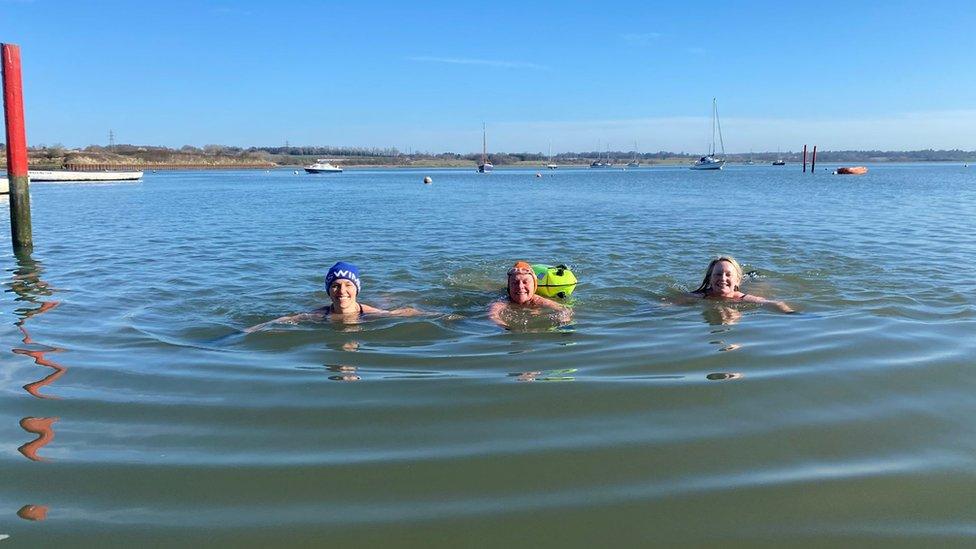
Anna (left) with fellow swimmers Laura and Helen, who take to the river most days at high tide
Bathing water status means pollution has to be regularly monitored, increasing pressure on water companies to improve water quality.
Anglian Water released sewage into the river through a pipe near the town 66 times last year, for a total of 1,248 hours, according to data from The Rivers Trust.
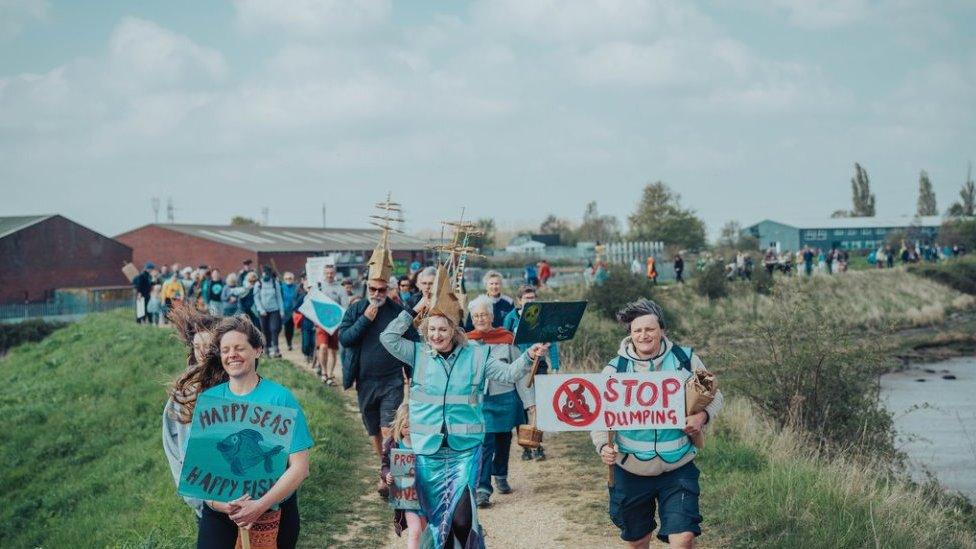
Ness Woodcock-Dennis (far right) got an eye infection after swimming in the river
Some swimmers have reported eye and ear infections, urinary tract infections and stomach bugs after being in the river.
Samples previously taken in Manningtree showed an E. coli count of 1000cfu/100ml. The threshold for good bathing water is less than 500cfu/100ml.
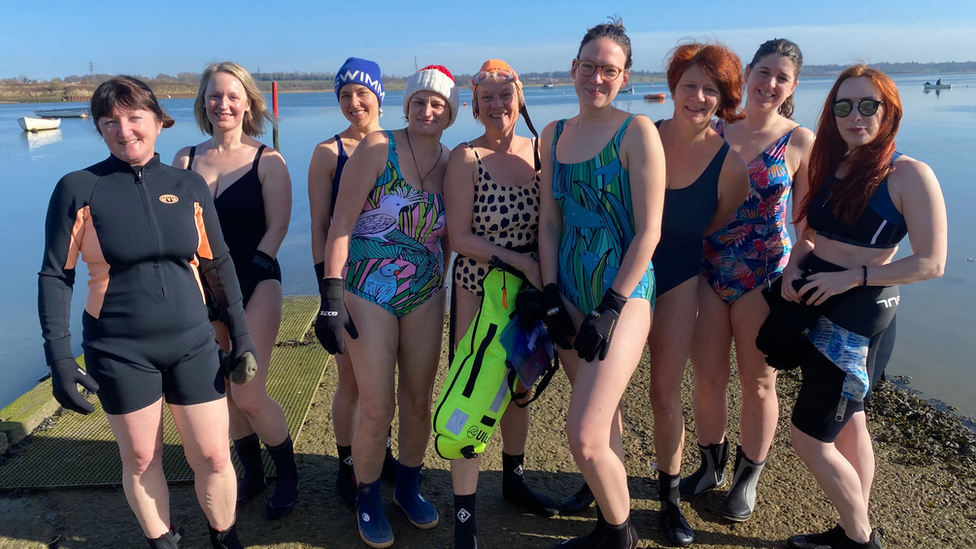
Lots of people who swim in Manningtree are concerned about falling sick
Mrs Helm Baxter, one of the team behind the S.W.I.M (Safe Water in Manningtree) campaign, said: "Designation will help us towards our goal for cleaner, safer water for people and planet.
"There is a combined sewage overflow pipe that releases sewage less than a kilometre away from where we swim.
"It's not currently monitored by Anglian Water so we have no idea what is being dumped but we know further upstream in Dedham a monitored pipe released sewage for over 1,200 hours in 2021.
"We need to know when sewage is being dumped so we can assess our level of risk when entering the water."
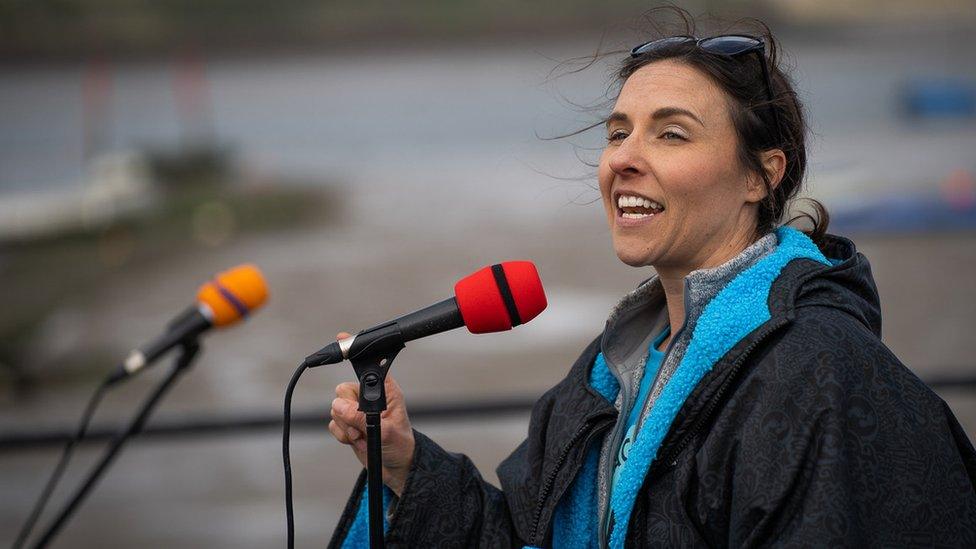
Campaigner Anna Helm Baxter organised the Manningtree protests amid concerns about sewage in the River Stour
More than 400 coastal locations around the UK have been given the designation, but this only includes two rivers. Water quality at these sites has steadily improved over the past 30 years but most rivers are lagging far behind.
In England, 14% of rivers are considered ecologically healthy, according to The Rivers Trust.
The S.W.I.M group is being mentored by the environmental charity Surfers Against Sewage, external, which alerts people through an app when sewage has been released.
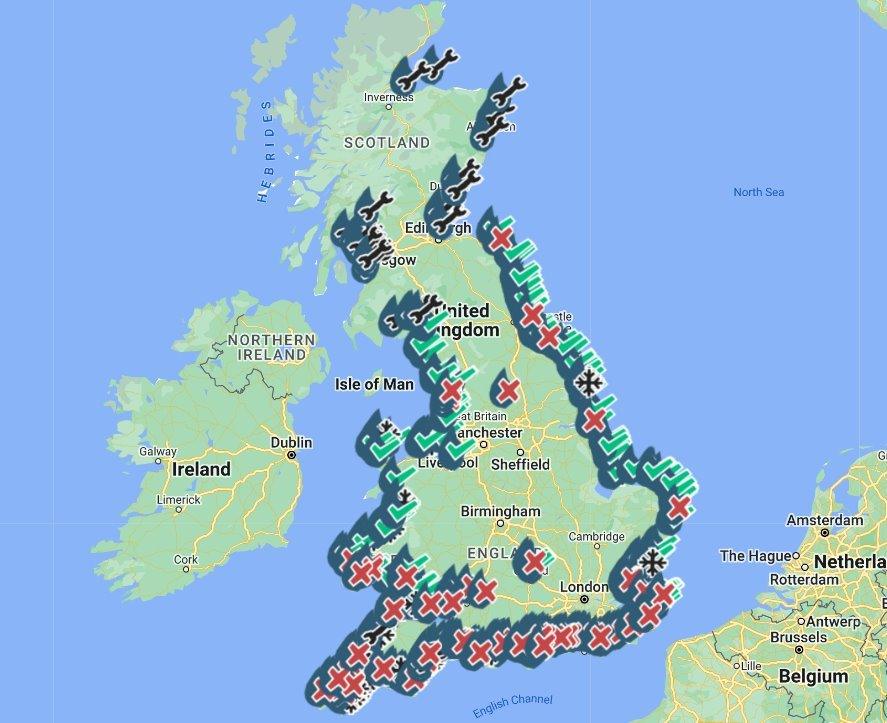
Surfers Against Sewage has produced an app and a web page alerting swimmers when sewage is discharged
Another group, called Save the Deben, is waiting to hear whether its bid for designated bathing water status has been successful for the River Deben, just over the border in Suffolk.
England's first river bathing site on the River Wharfe near Ilkley, West Yorkshire, which received its designation in 2020, was given a water quality rating of "poor" by the Environment Agency after it started being monitored.
Ultraviolet (UV) light is now being used to treat water before it is released into the river to attempt to improve the quality.
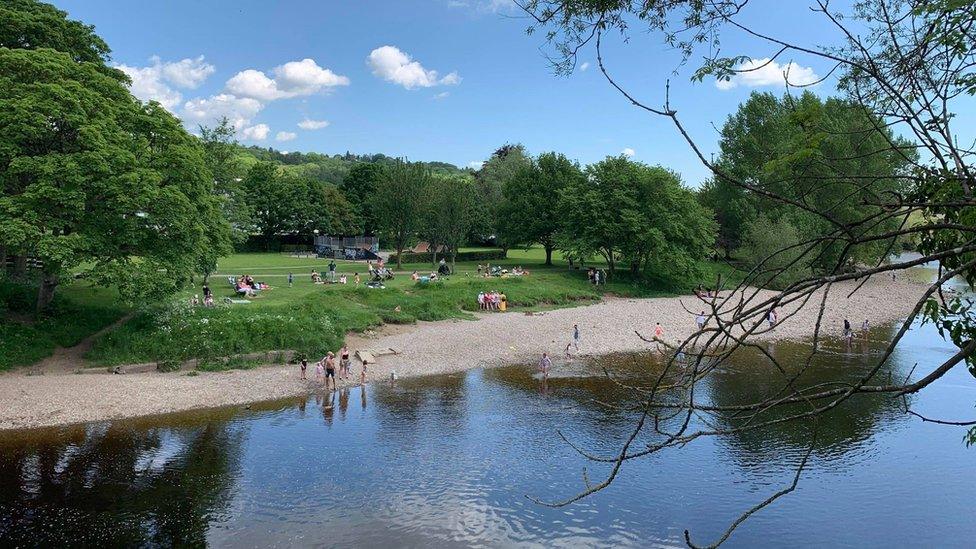
The River Wharfe is a popular paddling and bathing site
An Environment Agency spokesperson said: "Rivers and other open water locations that are not designated as bathing waters are managed for the purpose of protecting fish and wildlife, not people. Therefore, health risks from using these locations may be higher than at designated bathing waters. Current regulations for rivers and open waters in England protect wildlife and are not designed for the protection of human health.
"Bathing water designation enables the Environment Agency to assess what action is needed to improve water quality to meet the standards set by the Bathing Water Regulations. To make rivers fit for bathing requires action from us all to reduce sources of potential pollution."
An Anglian Water spokesperson said it was working to improve the accuracy of its monitoring of sewage pipes, and some of the spills may have been recorded erroneously.
"Between 2020 and 2025, we're reinvesting more than £200 million to reduce storm spills across the East of England as part of our Get River Positive commitment that neither storm overflows or our assets will not be the reason for unhealthy watercourses by 2030.
"And we're already working alongside community groups on several rivers in our region who are keen to apply for bathing designations, to help them monitor local water quality and understand other factors which contribute to river health," the spokesperson added.

Find BBC News: East of England on Facebook, external, Instagram, external and Twitter, external. If you have a story suggestion email eastofenglandnews@bbc.co.uk, external
Related topics
- Published30 October 2021

- Published23 April 2022

- Published24 November 2022

- Published5 September 2022
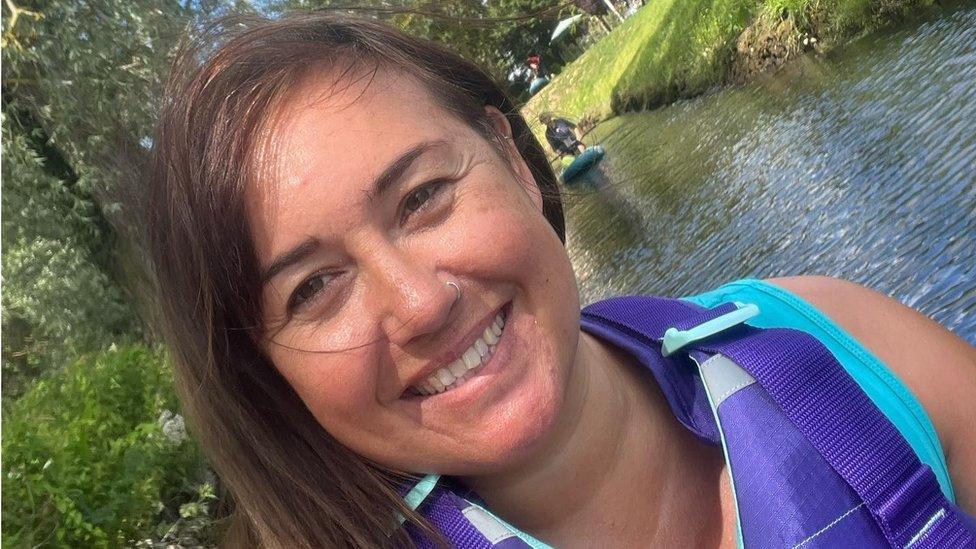
- Published8 June 2022
